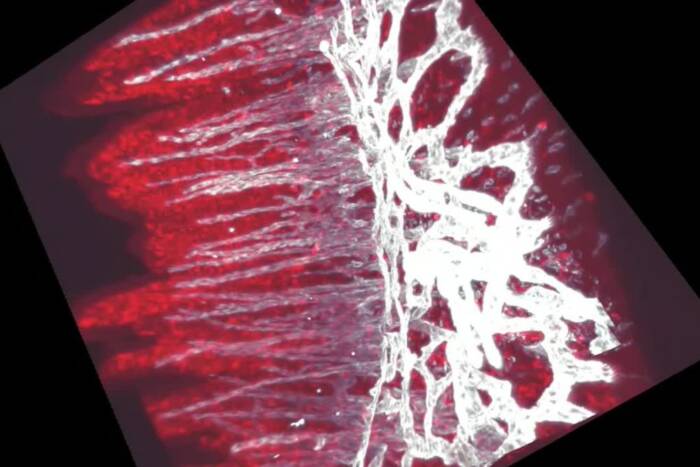Michael W. Young receives Massry Prize
 Michael W. Young, Richard and Jeanne Fisher Professor and head of the Laboratory of Genetics, is being honored with the 2012 Massry Prize for his groundbreaking work on the molecular biology of circadian rhythms.
Michael W. Young, Richard and Jeanne Fisher Professor and head of the Laboratory of Genetics, is being honored with the 2012 Massry Prize for his groundbreaking work on the molecular biology of circadian rhythms.
Established by the Meira and Shaul G. Massry Foundation, the prize recognizes outstanding contributions to the biomedical sciences and the advancement of health. Young shares the honor with two scientists from Brandeis University, Michael Rosbash and Jeffrey C. Hall, who also study circadian rhythms.
The Massry Prize includes a substantial honorarium and nine of its recipients have gone on to receive the Nobel Prize. It is the fourth such honor for the three neuroscientists — this year they were awarded the Canada Gairdner International Award (Rockefeller’s Jeffrey V. Ravetch was also a recipient), last year they were given the Louisa Gross Horwitz Prize from Columbia University and in 2009, the Neuroscience Prize from the Peter and Patricia Gruber Foundation.
“The discoveries by Mike and his colleagues of which genes regulate circadian rhythms in a model organism, the fruit fly, and how they function have markedly influenced our knowledge of how the human body works, including shedding light on how sleep is regulated and the basis of human sleep disorders,” says Marc Tessier-Lavigne, Rockefeller’s president. “Their work is an example of how basic research in science can be translated to new insights in physiology and human health, and this prize is the latest in a number of recent honors to recognize Young’s outstanding work.”
Young’s work spans nearly three decades of research on the biological clocks that regulate our bodies’ patterns of sleep and wakefulness, metabolism and response to disease. By studying Drosophila melanogaster, commonly known as the fruit fly, Young’s lab discovered the majority of the genes that regulate the fly’s circadian clock. Young’s findings have the potential to help individuals suffering from sleep and mood disorders as well as dysfunctions related to the timing of gene activities in visual function, locomotion, metabolism, learning and memory. Recently research in the Young laboratory has looked at circadian rhythms at the genetic and molecular levels in humans with certain sleep and depressive disorders.
Young received his undergraduate degree in biology in 1971 and his Ph.D. in genetics in 1975, both from The University of Texas, Austin. Following postdoctoral work in biochemistry at the Stanford University School of Medicine, he was appointed assistant professor at Rockefeller in 1978 as part of The Rockefeller University Fellows Program and was named associate professor in 1984 and professor in 1988. He was named the university’s vice president for academic affairs and Richard and Jeanne Fisher Professor in 2004. He is a member of the National Academy of Sciences and a fellow of the American Academy of Microbiology.
The Meira and Shaul G. Massry Foundation was established by Shaul Massry, professor emeritus of medicine at the Keck School of Medicine of the University of Southern California. The nonprofit promotes education and research in nephrology, physiology and related fields. The laureates are selected by a committee of distinguished professors representing both the University of Southern California (USC) and the University of California, Los Angeles (UCLA). The prize recipients will speak about their research at an event for faculty and students at USC and UCLA in October.
Previous Rockefeller University faculty honored with the Massry Prize include Gunter Blobel in 1999, and C. David Allis in 2003.


